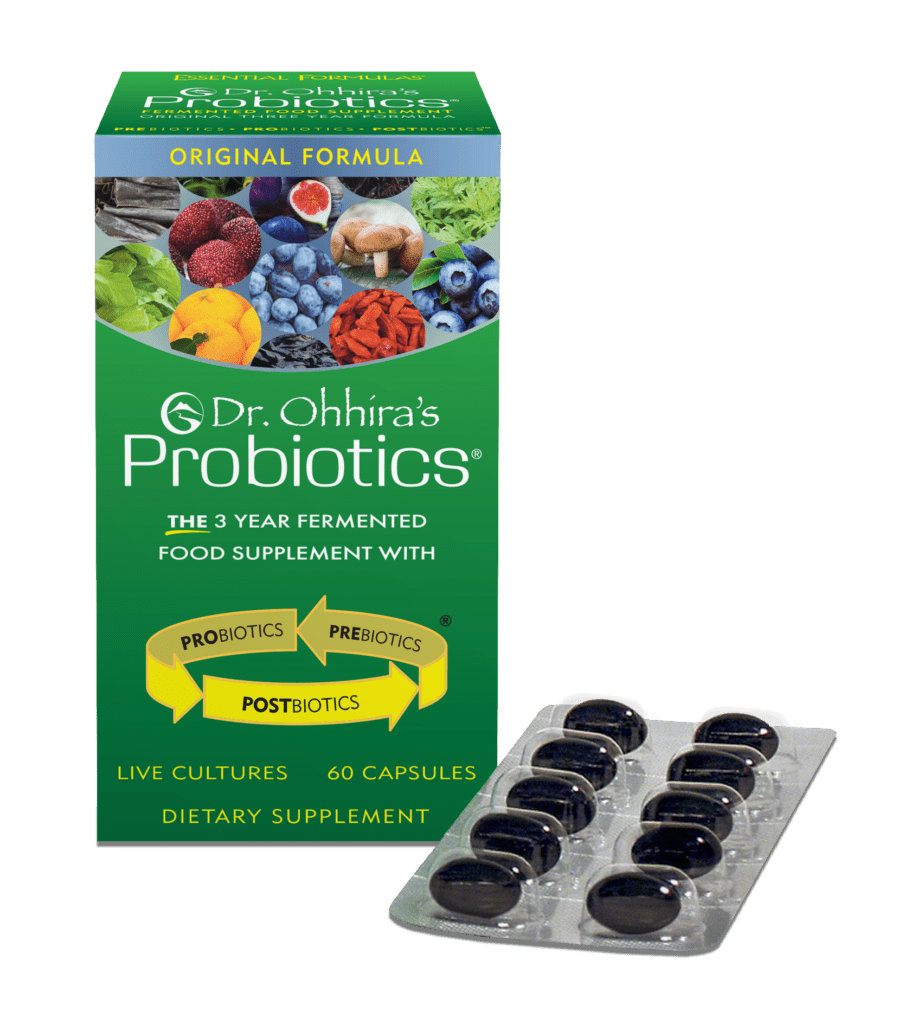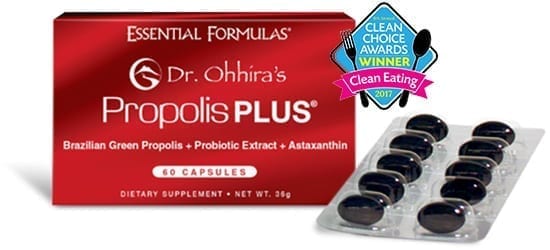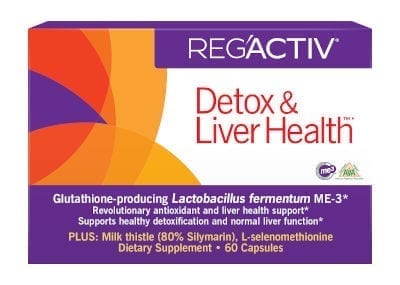Building and maintaining a healthy immune system can be a matter of life and death!
By Fred Pescatore, MD
Scientific Advisor, Essential Formulas
I’ve said it before: A healthy gut is central to a healthy life, long life! Nevermore so than at this point in human history. We need to keep our gut healthy so we can keep our immune system robust- it is that simple.
Most of you know by now that the gut produces up to 80% of our immune system cells. There is even a medical name for it called “Gut Associated Lymphatic Tissue” or GALT. If your gut isn’t healthy, how can you possibly be?
What’s the best way of keeping your gut healthy and, therefore, your immune system optimized? Diet is rule number 1! The second is taking a high-quality probiotic.
Numerous studies demonstrate that probiotics optimize the immune system and may play a vital role in helping prevent a whole variety of health issues, including enhancing brain health, lowering cholesterol, maintaining a healthy mood, and even helping to maintain a healthy weight.
But, the quality of the probiotic product you choose and the type of bacteria it contains is critical to its effectiveness.
Probiotics are live bacteria that help keep your gut healthy. These “good bacteria” help digest food, process and manufacture important vitamins, manage and eliminate toxins, and kill harmful bacteria. In essence, we need these beneficial bugs to survive.
However, the probiotics living in your gut can be disrupted, harmed, or even killed by any number of factors. Some of the things that can wreak havoc on the levels of good bacteria naturally present in your gut include:
- antibiotics
- steroid drugs
- oral contraceptives
- excess stress
- poor diet
- serious illness
And the worst offender of all—sugar—destroys good bacteria even faster than antibiotics do. Considering the average American consumes between 22 and 47 teaspoons of sugar each day, our guts can’t keep up.
That’s why everyone needs probiotic supplements—to boost your supply of good bacteria and help get your gut and your immune system back on track.
Our Top Probiotics
The Easy Steps to Find a Quality Probiotic
So what’s a consumer to do? Here’s my three-step plan to ensure you’re taking the highest-quality, most effective probiotics.
- Remember that bigger is not better when it comes to probiotics. A lot of probiotic products you see in pharmacies, health food stores, and vitamin shops try to wow you with the number of colony-forming units (CFUs) they deliver. But billions of CFUs are not suitable for you. Ingesting too many of any one type of bacteria can trigger an autoimmune response and cause complete havoc in your body.
- The most important thing is getting the right bacteria—and not too many of the same kind. That’s why you should look for products with multiple strains of probiotics. With trillions of different types of bacteria cells in your body, a supplement that only has a single strain (or even just a few) won’t be much help.
- Choose a probiotic that also contains prebiotics, which is basically “food” for probiotics. Prebiotics make probiotics more effective and longer-lasting.
Why Dr. Ohhira’s Probiotics?
Keep this checklist in mind when you’re shopping for a probiotic. (The product label should include all of this information.) Of course, if you want to save yourself the time, you can always opt for the probiotic formula I recommend: Dr. Ohhira’s Probiotic.
Dr. Ohhira’s uses a unique composting and fermentation processes to deliver ten different strains of live bacteria. Plus, they offer one of the few probiotic products that also contain prebiotics. And Dr. Ohhira’s probiotics even include lactic acid bacteria and bacteriocins (postbiotics), which work to kill off the bad bugs while replenishing the good ones.
With this virus raging throughout our country, it’s more important than ever to keep your immune system as healthy as it can be. Therefore it’s also more important than ever to know what to look for in a probiotic. But with these three simple steps, you have all the tools you need to choose a probiotic you can trust.
How our Immune Systems Work
We all talk about our immune system and that we want it to be strong and healthy. But what exactly is the immune system? For one thing, it is incredibly complex, and I am not sure we know exactly how it works. Otherwise, we would not be in the mess that we currently find ourselves. The one thing I do know is that we need a healthy gut, which means a robust and diverse microbiome for that to happen.
The immune system is the group of cells and molecules that protect us from disease by monitoring our body and responding to any foreign (non-self) substances they perceive as threats, particularly infectious microbes. Our immune system has co-evolved along with diverse gut flora, not only to create defenses against pathogens but also to develop a tolerance for beneficial bacteria.
As a result, the immune system and the gut microbiota developed a mutual relationship, regulating one another and cooperating to support each other. The importance of this interaction is highlighted by the fact that 70–80% of the body’s immune cells are found in the gut.
Communication is Everything
The immune system and the gut microbiome begin to communicate with each other the moment our body gets in contact with microbes—at birth. As we grow, the microbiome shapes the development of our immune system, and the immune system forms the composition of the microbiome. This communication and mutual regulation is maintained throughout life and is the key to a healthy interaction between the microbiome and the immune system. Under normal conditions, this means we maintain a healthy microbiome, which then supports immune cell development and robust immune responses.
But, as I have mentioned before, so many things that we do daily, or even on a routine basis, messes up this fantastic communication. And as we all know, communication is the key to any healthy relationship – this one is no different.
Now, if you thought that was a little complicated, there is more, much more. The immune system and the gut microbiome are entirely dependent on each other, and here’s how.
Imagine that the intestinal wall is the primary interface between the gut microbiome and our body. It acts as a barrier that protects our body from gut microbes while allowing good reactions to occur.
This barrier is composed of physical and chemical elements created by the epithelial cells that line the gut, the molecules on their surface, and the mucus they produce. The chemical barrier is formed by inflammatory molecules (cytokines), antibodies, and antimicrobial substances produced by epithelial and immune cells.
The Circle of Health
Epithelial cells recognize microbial products via immune receptors known as pattern-recognition receptors (PRRs). When these are activated, the epithelial activity takes its cues from chemical signals from the microbiota. This process allows epithelial cells to adjust their antimicrobial response to eliminate pathogenic infections, destroy infected cells, and influence the composition of the gut flora. Proper PRR signaling is vital for the maintenance of tolerance to good microbes, for the elimination of intestinal infections, and consequently, for the support of a balanced gut microbiota.
Epithelial cells also respond to metabolites produced by the gut microbiota, such as short-chain fatty acids (SCFAs), polyamines, and amino acids. You have probably heard of SCFAs, but here is what they do: serve as energy sources for epithelial cells, modulate their metabolism and their secretions, and help support the integrity of the epithelial barrier.
So it is one big happy circle, and it is how the gut microbiota can fine-tune the immune responses throughout the body.
At the same time, the barrier function of the intestinal wall is maintained by immune cells. Examples of these include M cells, dendritic cells (which many pioneering doctors are harnessing in the fight against cancer), and the all-important T and B cells.
Having said all this, you can see why having a healthy gut leads to a healthy immune system. And the most crucial factor in establishing and maintaining a healthy gut is to take a healthy probiotic. There is no way that you can get the necessary prebiotics, probiotics, or post-biotics such as bacteriocins without them.













